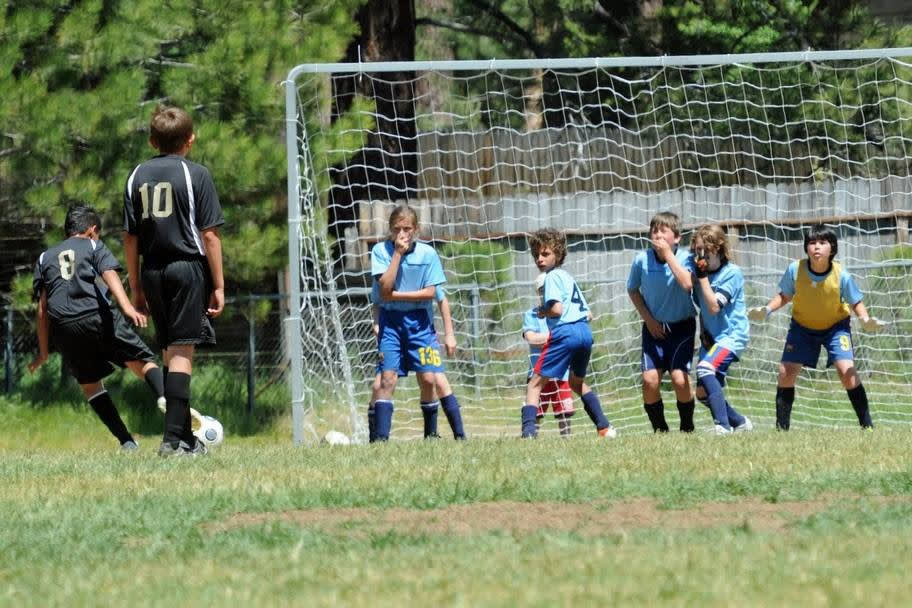
Moving from Recreational to Competitive Play
When is the right time to make the move?
When is the right time to go Comp?
Moving to a Competitive soccer team is a per-player consideration and can happen at many different ages. Because Rec has such a broad spectrum of skill level, for some, recreational play is appropriate for the duration of their soccer playing years. Recreational play also makes sense for multi-sport and one-season per sport athletes, since even if the player is very good, the top bracket Rec teams are often very, very good.
For others, the desire to focus on soccer, to build on individual skills and advance to the next level, to play year-round and to attend tournaments, rather than being daunting feels like the logical next step in their development. This can happen at any age - there is no rush! (USWNT striker Alex Morgan didn't start playing soccer until she was 14!) - but anecdotally in the City, where so many kids start playing as toddlers and by 4th or 5th grade have been playing for 5 years or more - the biggest shift of players from Rec to Comp tends to happen between the ages of 10-12.
Consider the following before committing your player to the rigors of competitive soccer:
- Developmental Readiness - Technically and Mentally. Do not overlook the mental aspect of moving to Competitive. Many players may be technically sound but are not engaged in the game enough to compete consistently at an advanced level.
-
Commitment: Competitive teams, particularly Travel teams, require more time year-round. Most teams have multiple practices and attend tournaments. In the older age groups Competitive teams also travel locally.
-
Playing Time: As a parent you need to be realistic to where your child fits. If the environment is too intense, where he or she can’t develop because every other player is too far ahead, then it won’t be enjoyable for the player and will likely lead to burnout.
-
Social Aspects: The reason your child is playing soccer, or any sport, is for the enjoyment of the game. If you child is having fun in the environment they are in (coaches, friends and development) they are most likely in the right spot. The players that start to show a competitive edge by maybe getting frustrated by players around them, from lack of skill level or focus, are the players that could potentially have more fun in stronger competition.
- Expenses: Competitive programs are typically more expensive than Recreational. This is mainly because of paid coaches and tournament expenses. Though nearly every team and club offer financial aid (and so does SFYS), the decision to go comp will affect your pocketbook.
READY TO TRY OUT?
Is your player attending tryouts? Know that in most cases, your player has the power! This is not like high school, where there are massive cuts because there are limited openings on a set number of teams. There are 20+ clubs in San Francisco - and most of them will happily accept your player and figure out later where to place them, or even build teams based on interest.
What you should know:
- Players are allowed to (and should!) attend multiple tryouts
Every club runs and organizes their tryouts differently. Attending multiple tryouts will give you a sense of how the club organizes itself and how they train and evaluate players. Attending multiple tryouts (or prospective team practices) is also a good way to meet club directors and coaches face to face, get a sense of their style of play and the fit of the team with your player's needs.
- Decision Deadlines are not SFYS-mandated or enforced
There is a city-wide deadline for signing, agreed to by all clubs.
What does this mean for players? If you're offered a spot for a team you are psyched to be on, take it. Not so sure? The gamble is whether there will be a spot open on a particular team. In San Francisco, if a player wants to play competitively, there will be room on a comp team somewhere - it just may not be the team you were hoping for. But making the commitment binds you for a full soccer year (August - July) ... so it's worth it to make sure the situation is right for your player.
- Ask to attend practices
Another way to get a feel for a team or club culture outside of tryouts is to ask to attend a practice. Most teams welcome players attending a practice because it gives them an opportunity to also evaluate the player in comparison to the players already on a team. This is also a way to see a Coach's training philosophy and if your child would fit well with the way the Coaches runs their practices.
-
Where are teams practicing?
SFRPD Spotery Public View of Team Practice Allocations

- US Youth Soccer 2014 Boys Competitive Coach of the Year, Mark Ryan
A Helpful Insight: Many clubs aim to find a suitable team for most players who try out. This underscores the importance of finding a team or club whose coaching style and culture align with your player's learning style and your family's expectations regarding time commitment, travel, and overall values.
Make sure that moving to a (different) club environment is the best decision for your player by asking the coach or club exactly what to expect. Not sure what to ask? While SFYS doesn't endorse specific clubs or teams, we want to empower you with strong recommendations on factors to consider when exploring competitive options for your player.
Key Factors to Consider When Evaluating a Competitive Soccer Club:
-
Cost: Competitive club soccer in San Francisco can range in cost, often exceeding $2,000 per year per child. We encourage you to contact prospective clubs directly for detailed pricing and financial aid information. When evaluating costs, consider the value proposition: Does the investment include a well-structured player development curriculum, dedicated and qualified coaches, clear playing time expectations, and valuable supplemental opportunities, especially at the foundational Copper and Bronze levels? Here are essential questions to ask about fees:
- What is included in the registration cost?
- Are the coaches licensed and experienced?
- Is there a dedicated coach assigned to the team?
- Are uniforms and essential gear included?
- Is there a minimum playing time expectation?
- What tournaments and travel are included, and what are the potential additional costs?
- Are supplemental programs like summer/winter training or futsal included? If not, what is the expectation and cost for participation?
-
New Team vs. Existing Team: It’s valuable to know if your child is joining a team with returning players or a newly formed team. If your current team is considering joining a club for regional league play, ensure clarity on whether your team will maintain its cohesion or if players will enter a general player pool.
-
Practice Location(s): While consistent practice locations are ideal, SF Rec & Park utilizes a lottery system, which can lead to varying field assignments throughout the year. Be aware that full-sized pitches are typically allocated to teams U12 and older, while younger teams often practice on smaller field areas. Consistent location isn't always guaranteed.
-
Practice Frequency: Clarify the number of practices per week. Typically, it's one or two sessions, with some teams having access to non-city fields potentially offering a third. Consider your player's other commitments and their overall interest and capacity for soccer training.
-
Playing League: Understand where the team will primarily compete. San Francisco offers local competitive leagues (SFYS) as well as regional travel leagues (CalNorth CCSL and NorCal Premier), along with various supplemental tournaments. Each involves different costs and time commitments. Travel leagues are often most beneficial when local competition is limited. Some clubs may prioritize travel leagues for various reasons. If the team your player is considering isn't already performing at a high local level, carefully evaluate the coaching and costs, and inquire if they also field local competitive teams.
-
Who is the Coach?: Inquire about the assigned coach for your child’s team. Some teams have established coaches, while others may have coaches assigned later. If the coach is a significant factor in your decision, don't hesitate to ask for more information. Does having a dedicated coach matter to you?
-
Coach Licensing: Feel comfortable asking about a coach's qualifications and licenses if this information isn't readily available. Licensing can sometimes influence a team's eligibility for certain leagues. Ultimately, you decide the importance of coaching credentials for your player's development. SFYS requires a minimum Grassroots coaching license and field training for head coaches, while NorCal has different requirements. Understanding these differences can help you assess the coaching environment.
-
Team Management: Understand the administrative support provided by the club. Some clubs have dedicated administrators, while others rely on parent team managers. Consider the level of logistical support offered and what responsibilities your family will have.
- Goalkeeper / Supplemental Training: Inquire about specialized goalkeeper training or other supplemental programs like injury prevention. Feel empowered to ask, "What additional resources and support are offered to my child?
MOST RECENT
-
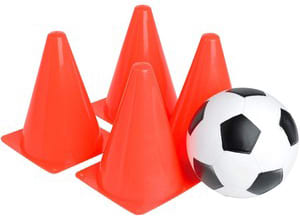 GUIDANCE : Tryouts & Competitive ClubsEach year we’re asked for information and guidance regarding tryouts, especially as the number of Clubs and options continue to read more... PLAYSFYS
GUIDANCE : Tryouts & Competitive ClubsEach year we’re asked for information and guidance regarding tryouts, especially as the number of Clubs and options continue to read more... PLAYSFYS -
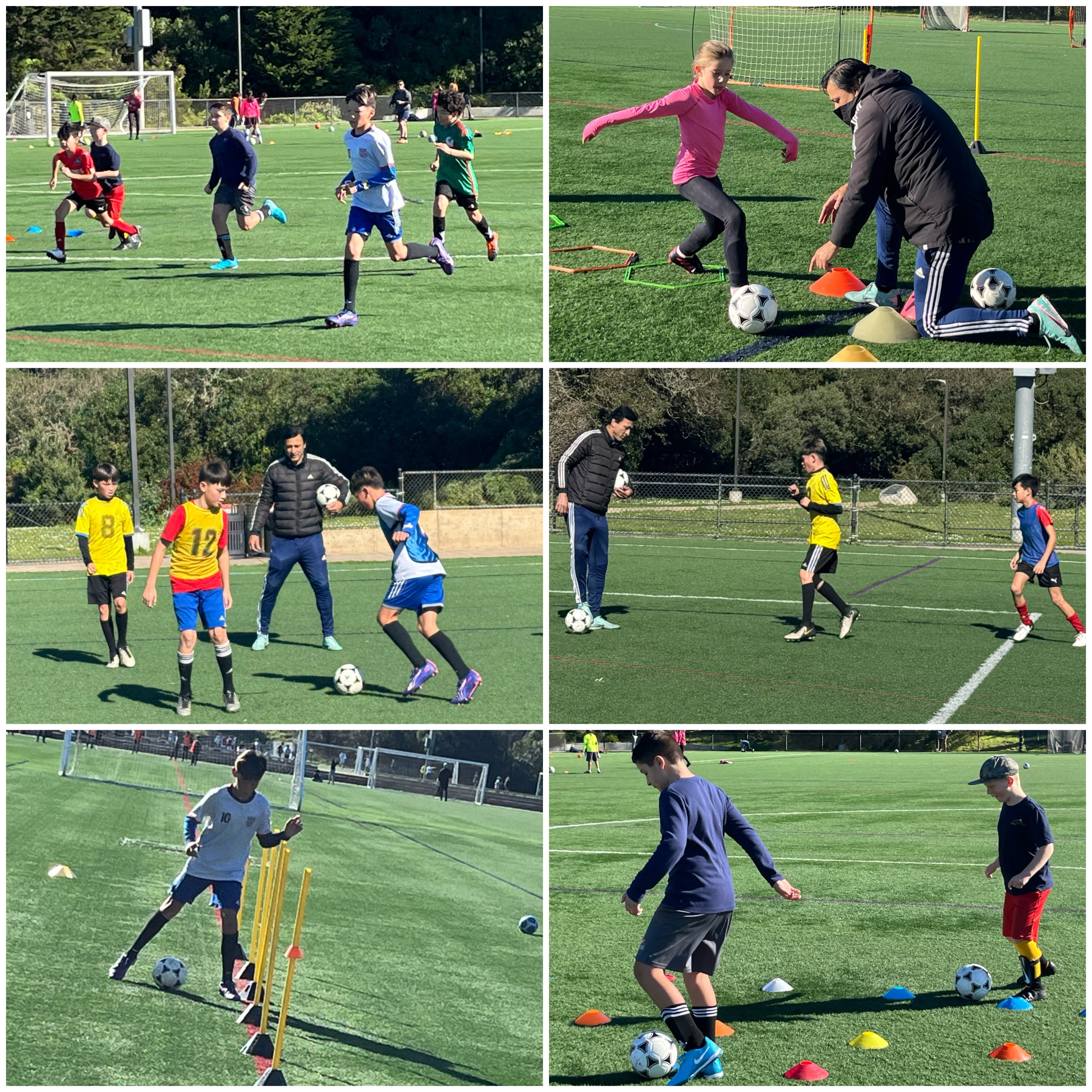 Spring Player ClinicsSpring Bonus! Thanks to field availability at Paul Goode (thanks to Presidio Trust and University HS!), SFYS is pleased to offer read more... PLAYSFYS
Spring Player ClinicsSpring Bonus! Thanks to field availability at Paul Goode (thanks to Presidio Trust and University HS!), SFYS is pleased to offer read more... PLAYSFYS -
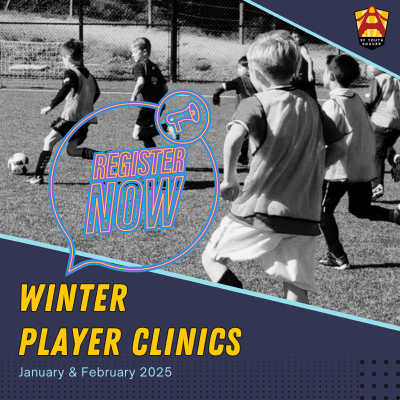 SFYS Winter Player ClinicsSFYS Winter Player Clinics offer players the opportunity to experience a training environment beyond their typical read more... PLAYSFYS
SFYS Winter Player ClinicsSFYS Winter Player Clinics offer players the opportunity to experience a training environment beyond their typical read more... PLAYSFYS -
 SFYS Goalkeeper ClinicsBy popular demand, Coach Krysta returns for Winter Group Trainings! 3 dates in January and February. Click here to register! read more... PLAYSFYS
SFYS Goalkeeper ClinicsBy popular demand, Coach Krysta returns for Winter Group Trainings! 3 dates in January and February. Click here to register! read more... PLAYSFYS -
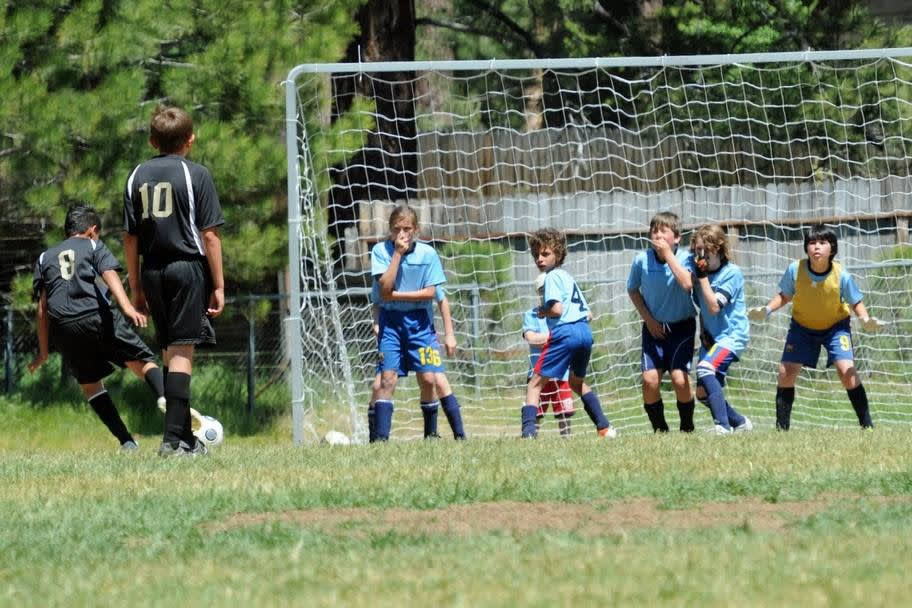 UPDATED Explainer: Dual Rostering vs. Guest PlayAre players allowed to play for both their school team and their club team? Officially, No. But there is a difference between read more... PLAYSFYS
UPDATED Explainer: Dual Rostering vs. Guest PlayAre players allowed to play for both their school team and their club team? Officially, No. But there is a difference between read more... PLAYSFYS
Parents, beware! Tryouts are a big joke. Observe a tryout and watch the coaches--they're not taking notes. They're not assessing player strengths and weaknesses. Your child won't get a laundry list of things to improve on, regardless of how they performed on the day. Those are all signs of professionalism, and there is little/none in the tryout process.